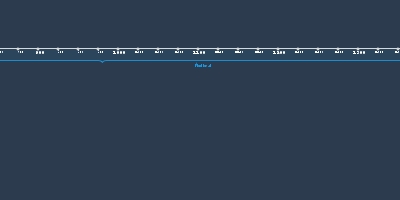Handel (GER) (1 janv. 1685 – 1 janv. 1759)
Description:
English oratorio – typically a work using a three-act dramatic text based on a sacred subject with a prominent chorus.not liturgical and not performed in an oratory –meant for the concert stage and concertos performed between acts.
Handel divided the work into three acts instead of 2 parts like an Italian oratorio.
Italian oratorio and English oratorio are unstaged operatic works, both include love scenes, Handel often borrowed music from his Italian oratorios. Handel oratorios share a similarity with German Protestant oratorio with the focus on chorus. Sometimes the chorus participates in the action like turba choruses found in Passions. The chorus also exists outside the action and gives commentary like a Greek chorus which is the influence of French classical drama.
Israel in Egypt, Messiah, and the Occasional Oratorio have nondramatic librettos. Israel in Egypt and Messiah use text from the Bible for the libretto and have no characters that carry the dramatic action. The text is narrative, descriptive, and reflective.
Mr. Handel’s Oratorio has no unifying plan, and The Triumph of Time and Truth (1757) is a revision of an Italian work and is not religious. Not really oratorio.
Handel composed seven secular oratorios: Acis and Galatea, Alexander’s Feast, Ode for St. Cecilia’s Day, L’Allegro, Semele, Hercules, and The Choice of Hercules. Handel never called these works oratorios and during his time secular oratorio was not a term that people used. They were performed in the same manner as an oratorio.
Oratorio was Handel’s substitute for opera and came at a time when he had abandoned composing opera seria – secular oratorios were essentially unstaged operas.
Oratorio was not an opera substitute for opera during Lent like Rome and Venice. Handel’s oratorios often happened during Lent because of their sacred subjects but opera was still allowed in England during Lent.
Handel oratorios were never staged – his first oratorio Ester was originally staged in a private performance and Handel planned to stage the work but was not allowed by the bishop of London. Handel produced Ester without staging and that established a precedent for all English oratorios during his lifetime. Handel still gave some “stage directions” which were printed in some manuscripts and librettos showing that Handel may have still envisioned some dramatic action.
All oratorios except Messiah and Theodora are from the Old Testament or the Apocrypha. Librettist took liberties with the Old Testament texts. Audiences were more drawn to Old Testament stories and identified with the Israelites – the heroic figures, worship of God, and protection by God all lend to nationalistic themes.
Handel’s librettists were influenced by classical drama and the traditions and spirit of Greek drama and used chorus more than masques which were short operas that were popular in England. Esther and Athalia are both based on classical tragedies by Racine, tragedies that include Greek chorus. Saul, Samson, Belshazzar, and Jephta also share these classical characteristics with the role of the chorus.
Borrowing – Handel borrowed heavily from his own music and from others. Handel did not borrow full movements or exact music from other composers. He was never accused of plagiarism during his time, but borrowing was common practice. Only in a few instances Handel took an unchanged movement from another composer and used it in an oratorio but with some tweaks to improve on the prior work. Israel in Egypt uses the most borrowing than any other oratorio. Borrowing increased around 1736. Jephtha, his final oratorio, also has a lot of borrowing probably due to poor health. In later oratorios more instrumental numbers were borrowed than vocal, and more choral than solo.
Ajouté au bande de temps:
Date:
1 janv. 1685
1 janv. 1759
~ 74 years
